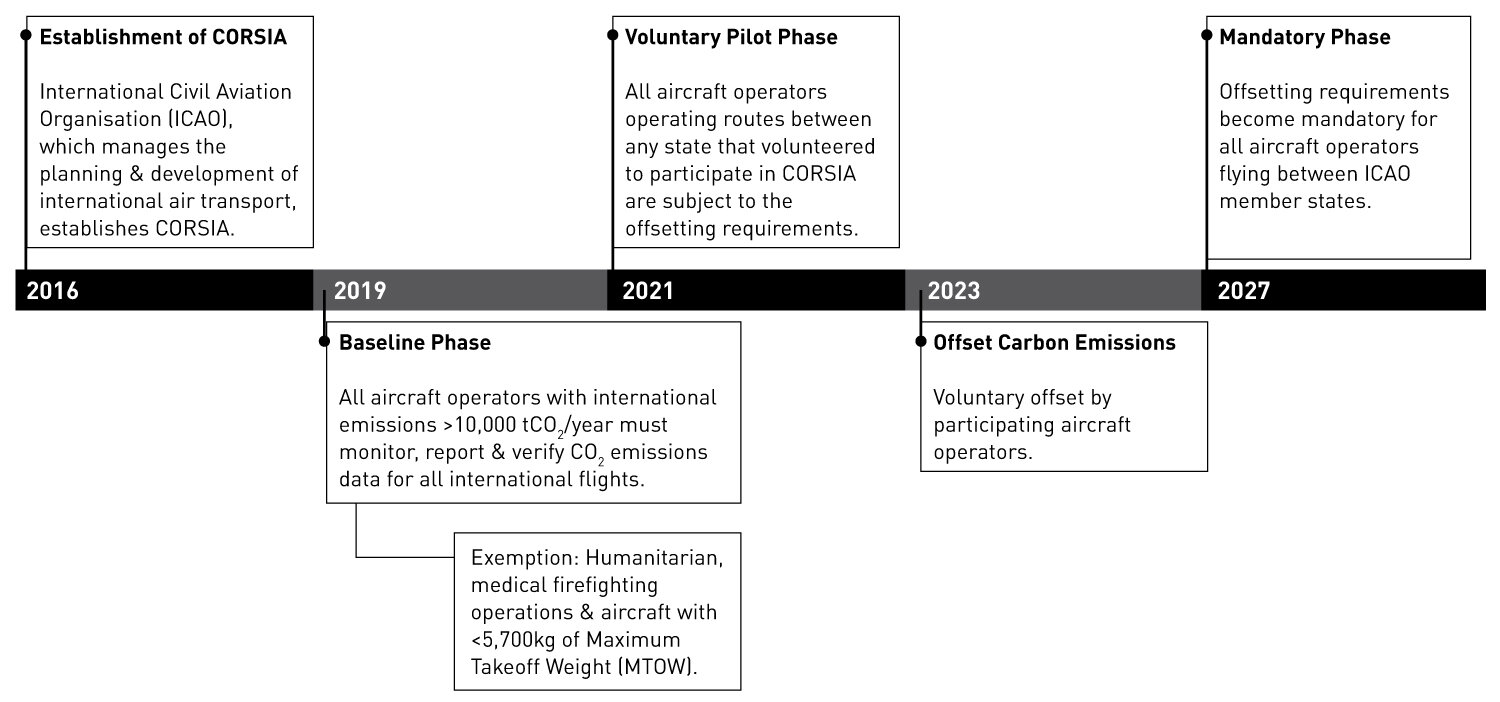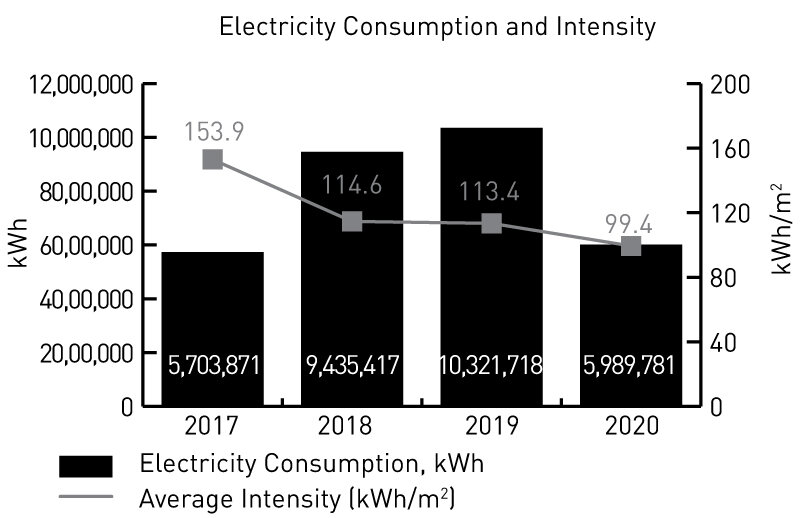CLIMATE-RELATED RISK MANAGEMENT
As Asia’s leading low-cost airline, we are committed to living up to guests’ expectations while fulfilling our responsibilities in protecting the environment. In line with the aviation industry’s strategy to address climate change, we have adopted a global market-based initiative, CORSIA that aims to achieve carbon-neutral growth.
AirAsia’s Short, Mid and Long-term Carbon Emissions Goals
Under the scheme, all civil aviation operators registered in participating countries including Malaysia, Thailand, Indonesia and The Philippines are required to report verified carbon emissions data on international flights to the respective civil aviation bodies annually from 2019 onwards, ahead of the introduction of a carbon offsetting regime by 2023. Offsetting was earlier scheduled to commence in 2021 but has been postponed due to the pandemic.
To meet CORSIA requirements, we submitted the Emissions Monitoring Plans (EMPs) and first verified carbon emissions reports for 2019 to the respective civil aviation regulators in Malaysia, Thailand, Indonesia and The Philippines. Manuals were also developed for each of the countries to identify accountable personnel, establish processes and procedures for data collection.
In early 2020, we developed a comprehensive sustainability dashboard to enable effective tracking and monitoring of relevant data, not only of carbon emissions from flights but also our utilities consumption, printing usage and recycling activity at all AirAsia offices. Multiple engagements were undertaken with the relevant departments to plug data gaps, implement consistent data collection processes and improve data integrity.
All seven airlines’, registered in the 4 countries successfully submitted their respective emissions reports to regulators before the CORSIA-determined deadline of 31 May 2020.
Below is the reported carbon emissions report for 2019 and 2020.
Climate-Related Disclosure
A key development has been the decision to adopt the recommendations of the Financial Stability Board’s Task Force on Climate-related Financial Disclosures (TCFD). Acknowledging the threats posed by climate change, we recognise the need to include climate change-related risks in our business strategies and decisions.
We engaged Imperial College London, to conduct our first Climate Risk Scenario Analysis. Completed in November 2020, the exercise modelled two alternative carbon mitigation scenarios. Both point to the need for AirAsia, along with other airlines, to adopt renewable bio-based (BioJet) fuel by 2031.
Carbon Monitoring
We have continued to monitor our carbon emissions: however, because of the greatly reduced flight operations and omission of data from AirAsia X Indonesia, AirAsia Japan and AirAsia India, there can be no fair comparison of the data for 2020 with that for 2019 or prior years.
We monitor them based on the following categories:
Along with the huge reduction in the number of flights, the Group’s Scope 1 emissions (excluding AirAsia X Indonesia, AirAsia Japan and AirAsia India) dropped by 75.5% from 10,114,380 tonnes in 2019 to 2,473,335 tonnes. However, our carbon intensity ratio increased, from 2019 to 2020.
This was due to the drop in Revenue Passenger Kilometres (RPK) from the lower number of passengers with shorter flight distances, as there were no international flights.
We expect our emissions intensity to normalise once travel restrictions ease and RPK is restored to pre-Covid 19 levels.
Energy Consumption
Although the pandemic has significantly reduced demand for travel and therefore total consumption, it has also reduced our fuel productivity due to the decrease in the number of passengers. This is because productivity is measured against RPK.
In 2020, with fewer Allstars at RedQ, we switched on the air conditioning and lights in only one zone from 9.00am to 6.00pm on Levels 4,5,6 and Santan Cafe. Together with data compiled from both the offices in Japan and India, it had contributed to a 42% drop in total electricity consumption.
There are also several various initiatives including:
Planned preventive maintenance to ensure the efficiency of air handling units
Zoning circuit distribution to reduce light usage
Hot desk seating to improve energy efficiency
Replacement of all light fixtures with LED bulbs
For full details and the complete AirAsia Sustainability Report 2020, click here.









